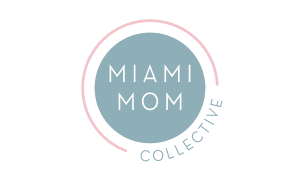This article is brought to you by our partners at HCA Florida Healthcare.
Becoming pregnant is an exciting time for your growing family. But if you’re pregnant with multiples, it may mean that you need an extra level of care. Find out if you are more likely than other women to get pregnant with multiples and what kind of prenatal care you will need to keep you and your growing babies healthy.
Are you more likely than other women to get pregnant with multiples?
Factors that may increase the likelihood to get pregnant with more than one baby:
- Fertility treatment: If you’re having fertility treatment, it’s important to try to get pregnant with just one baby. For example, if you’re having a treatment called in vitro fertilization (IVF), you can have just one embryo placed in your uterus. This is called single embryo transfer (SET). If you’re having any kind of fertility treatment, talk to your provider about ways to help lower your chances of getting pregnant with multiples.
- You’re in your 30s, especially your late 30s: If you’re 30 or older, you’re more likely than younger women to release more than one egg during a menstrual cycle.
- A family history of multiples: If you or other women in your family have had fraternal twins, you may be more likely to have twins as well. You’re also more likely to have multiples if you’ve been pregnant before, especially if you’ve been pregnant with multiples.
- Obesity: If you’re obese, you have an excess amount of body fat and your body mass index (BMI) is 30 or higher.
- Race or ethnic background: Black women are more likely to have twins than other women. White women, especially those older than 35 years old, are most likely to have higher-order multiples (pregnant with three or more babies).
How do you know if you’re pregnant with multiples?
You may be pregnant with multiples if:
- Your breasts are very sore
- You’re very hungry or you gain weight quickly in the first trimester
- You feel movement in different parts of your belly at the same time
- You have severe morning sickness
- Your health care provider hears more than one heartbeat or finds that your uterus (womb) is larger than usual
- You have high levels of a hormone called human chorionic gonadotrophin (also called hCG) or a protein called alpha-fetoprotein in your blood – HCG is a hormone your body makes during pregnancy and Alpha-fetoprotein is a protein that a developing baby makes during pregnancy
- Your provider uses ultrasound to find out for sure if you’re pregnant with multiples
What kind of prenatal care do you need if you’re pregnant with multiples?
If you’re pregnant with multiples, you may need extra medical care during pregnancy, labor and birth. You may need to go to extra prenatal care checkups so your provider can watch you and your babies for problems. You also may need more prenatal tests like ultrasounds to check on your growing babies throughout your pregnancy.
If you’ve had pregnancy complications in the past or if you have health conditions that put you at risk for pregnancy complications, like diabetes or high blood pressure, your provider may refer you to a maternal-fetal medicine specialist. This is a doctor with education and training to take care of women who have high-risk pregnancies.
If you’re referred to this kind of doctor, it doesn’t mean you’ll have problems during pregnancy. It just means he or she can check you and your babies closely to help prevent or treat any conditions that may arise.
Find an OB/GYN
At HCA Florida Healthcare, we’re your partner in care, from family-centered labor and delivery services to maternity tours and classes.
As one of the largest healthcare providers in the state, our extensive network is home to everyone from OB/GYNs and midwives to high-risk pregnancy doctors and neonatologists. Find an OB/GYN near you.

















